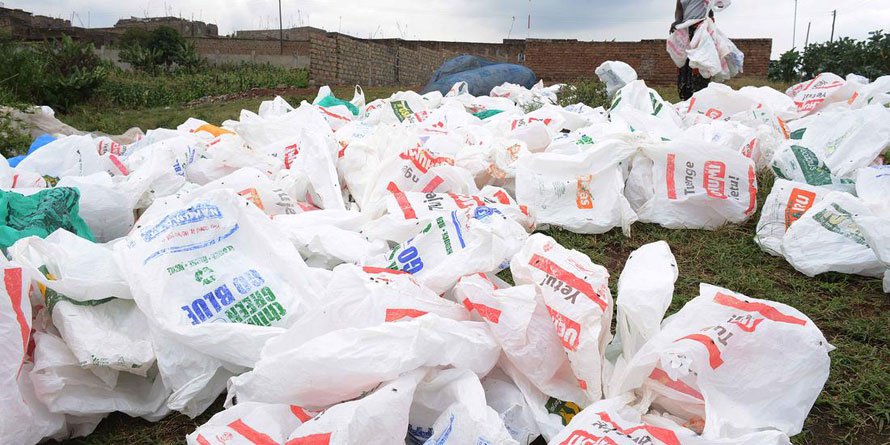Kenya on Monday kicked off the implementation of plastic bags ban despite opposition from manufacturers.
The High Court last week also ruled against a case filed by two plastic bags importers and declined to suspend the ban. Environment and Land Court Judge Bernard Mweresa Eboso on Friday said public interest tilts in favour of not granting the orders sought.
The judge said the notice is intended to control plastic menace in the environment.
“Granting the orders sought will severally undermine the protection of the environment while serving commercial interests,” Justice Eboso said.
Though the Kenya Association of Manufacturers (KAM) had claimed they were not adequately consulted before implementation of the notice, the judge said a casual look at the documents filed in court demonstrated there were sufficient consultations.
The government and the plastic manufacturers have been in consultation since 2007 on the need to eradicate plastic waste from the environment.
The court said players in in plastic sector were adequately represented.
He said the question on whether a criteria for public participation was met is something to be raised at the time of hearing.
The judge said section 86 of the Environmental Management and Co-ordination Act (EMCA) empowers the Cabinet secretary to formulate policies aimed at conserving the environment. The case will be heard on September 21.
However, as implementation of the ban kicks off today, reports indicate that the ban has caught most traders off-guard despite a six-month notice by the Government.
The notice banned the use, manufacture and importation of all plastic bags used for commercial and household packaging to be effected on August 28, 2017.
Anyone, including consumers, flouting the ban will face between one and two years jail term or a fine of between Sh2 million and Sh4 million. According to Kenya’s National Environment Management Authority (Nema), the papers contribute 9 per cent of total waste and create over 90 per cent of the environmental degradation. Across the country, several towns have a recorded a rush for alternative shopping bags as the ban kicks off.
In Nakuru, residents and business people visited supermarkets to buy environmental-friendly bags to replace the plastics carriers.
A spot check by The Standard, however, showed that there was no supply of the bags despite the high demand in the supermarkets.
Uganda Lags Behind
In the East African region, Rwanda has been hailed for properly eradicating plastic bags commonly referred to as Kaveera in Uganda. In Uganda, it is close to 10 years since the ban on polythene bags (Kaveera) on the Ugandan market was pronounced. The ban, announced by former Finance minister Syda Bbumba during her reading of the 2009/2010 national Budget, is yet to have full effect to date.
In her Budget speech, she slapped an excise duty of Shs120 per cent on kaveera production. The general public was given a six-month grace period to transit from use of kaveera to environment-friendly alternatives. The Finance minister reasoned that the polythene bags posed a great danger to the environment and would violate citizens’ rights to a clean and conducive environment to live in.
However, while a National Environment Management Authority official claims that the authority has not given up implementing the kaveera ban, on the ground, it is a totally different story.
The environment is still littered with kaveera. Some supermarkets, retail shops, markets, etc, still give their customers kaveera to carry items they buy. Kaveera constitute a of great danger to our environment. Due to littering, they clog drainage channels, many grounds in the urban areas, school compounds, garbage heaps, etc are plagued with poorly disposed polythene bags. Government has been blamed for poorly implementing the ban on kaveera due to its failure to involve key stakeholders including the public.





